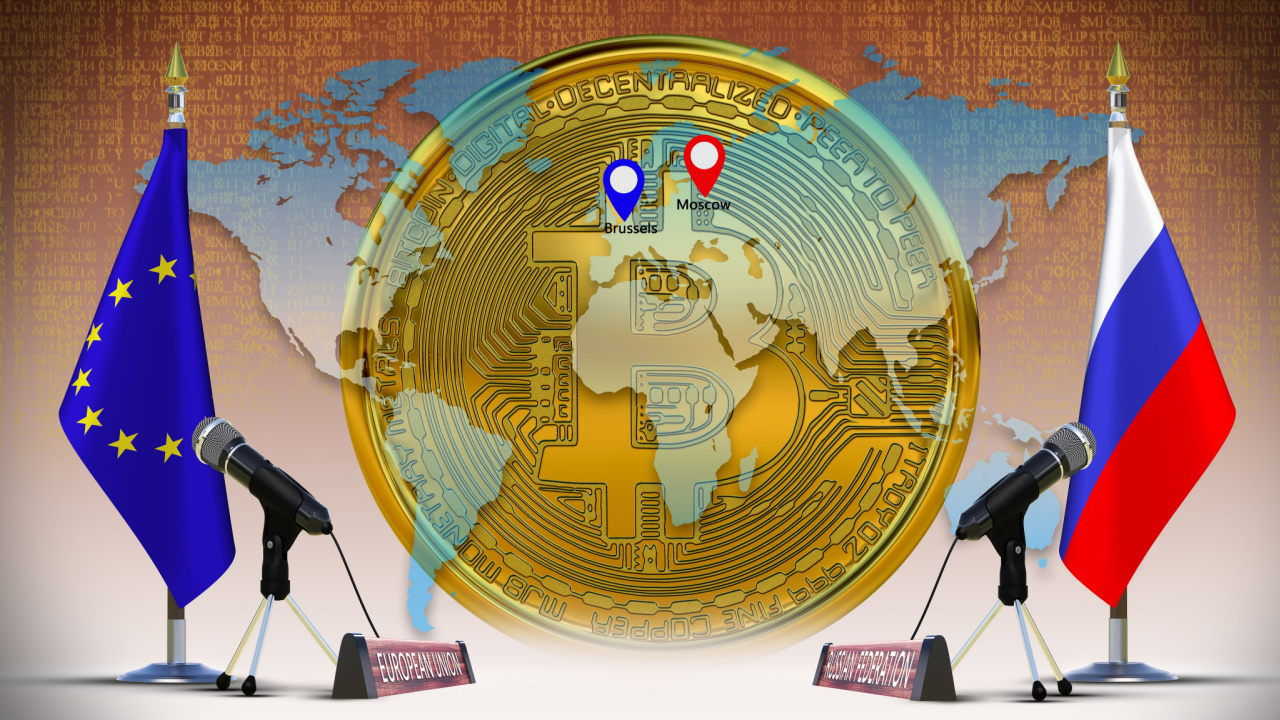A number of crypto-related services have been targeted in the latest round of sanctions against Russia approved by the European Union. The measures are part of an expected tightening of economic and financial restrictions in response to Moscow’s decision to annex Ukrainian territories.
The EU Council adopts a full ban on crypto wallets and custody services for Russian persons
The Council of the European Union announced new sanctions against Russia against the backdrop of the deepening military conflict in Ukraine. The sanctions, which are expected to hurt the Russian government and economy, come after Moscow took steps to annex the Ukrainian regions of Donetsk, Luhansk, Zaporizhzhia and Kherson.
In a statement, EU High Representative for Foreign Affairs and Security Policy Josep Borrell stressed that the sanctions are a response to the latest escalation with the “fake referendums” in these four oblasts. Russian individuals and entities that have played a role in their organization will be specifically targeted.
Other Russian citizens and businesses will also take a hit, including those dealing in cryptocurrency. The new measures include a complete ban on the provision of wallet, account or custody services for crypto-assets to Russian persons and residents. That is regardless of the value of those assets, according to the eighth package of sanctions imposed by Brussels.
This spring, when the EU approved its fifth round of such measures, the council banned only the supply of “high-value” crypto-asset services to Russians and organizations registered in their country. The ban applied to digital funds exceeding €10,000 (close to $11,000 at the time).
New European sanctions to hit Russian imports and exports
While the previous restrictions were intended to limit the transfer of wealth through digital assets and close other loopholes in the crypto space, a recent report revealed that pro-Russian groups have been actively using cryptocurrency, often in small transactions, to finance paramilitary operations in Ukraine. According to the research, they have collected $400,000 in crypto since the start of the invasion in late February. Russian authorities have also been working to allow businesses to use crypto payments for international settlements.
With the latest move, the EU also bans the supply of IT consultancy services and legal advisory services to Russia, as well as architectural and engineering services. Russian imports and exports have also been targeted, including sea transport of crude oil and petroleum products to third countries. Delivery of related services will only be permitted if these have been purchased at or below a predetermined price ceiling, which has not yet been determined.
Among the other measures is a ban on EU citizens holding positions in the governing bodies of any Russian state-owned or government-controlled entities. The Council also decided to extend the criteria for persons to be designated as facilitating the circumvention of restrictions imposed by the European Union. The European Commission, the executive body in Brussels, welcomed the latest package of sanctions.
Tags in this story
annexation, ban, conflict, council, crypto, crypto services, cryptocurrencies, cryptocurrency, custody, escalation, EU, Council of the European Union, European, European Union, Export, import, package, ban, referendums, referendums, regions, restrictions, round, Russia , Russian, sanctions, services, Ukraine, wallets, war
Do you think the new EU sanctions will significantly limit access to cryptocurrencies for Russians? Share your thoughts on the topic in the comments section below.
Lubomir Tassev
Lubomir Tassev is a journalist from tech-savvy Eastern Europe who likes Hitchens’ quote: “To be a writer is what I am, rather than what I do.” Besides crypto, blockchain and fintech, international politics and economics are two other sources of inspiration.
Image credit: Shutterstock, Pixabay, Wiki Commons
























